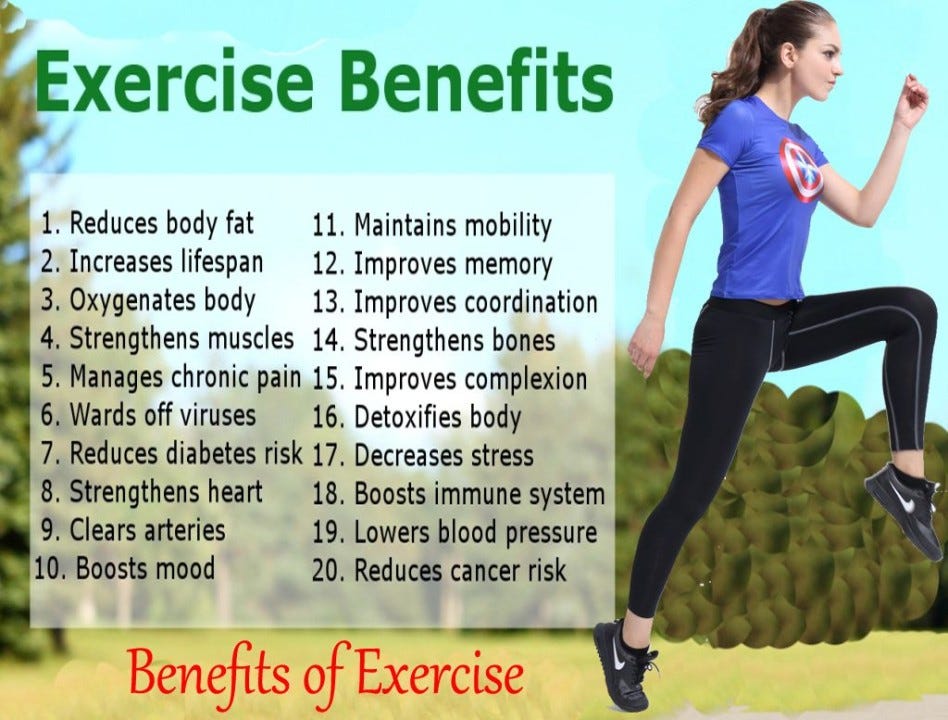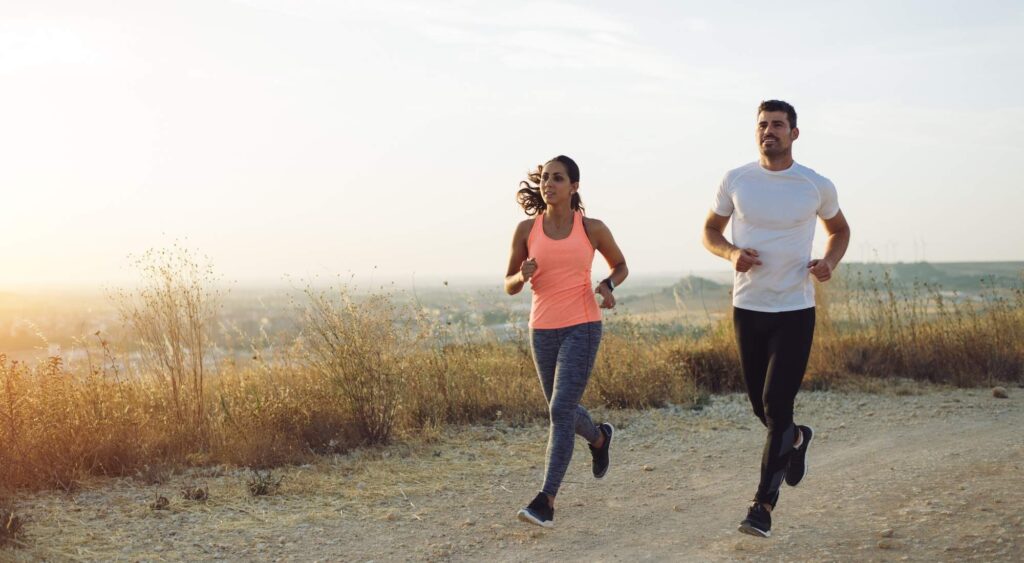Physical Benefits of Exercise
In today’s fast-paced world, where convenience often comes at the cost of physical activity, the importance of exercise for the human body cannot be overstated. Regular physical activity is one of the most beneficial things a person can do to improve their health and overall quality of life. https://www.mayoclinic.org/healthy-lifestyle/fitness/in-depth/exercise/art-20048389 The Importance of Exercise for the Human Body From enhancing mental clarity to strengthening muscles and bones, exercise plays a critical role in maintaining both physical and mental well-being. The Importance of Exercise for the Human Body This article explores why exercise is essential, the benefits it offers, and how you can incorporate it into your daily routine.
One of the most obvious reasons people exercise is to improve physical health. Here’s how regular activity benefits the body
a. Improved Cardiovascular Health
Exercise strengthens the heart and improves circulation. When you engage in physical activities like walking, running, or swimming, your heart becomes more efficient at https://www.mayoclinic.org/healthy-lifestyle/fitness/in-depth/exercise/art-20048389 pumping blood, and your blood pressure tends to decrease. This reduces the risk of heart disease, stroke, and high blood pressure.
b. Stronger Muscles and Bones
Weight-bearing exercises such as strength training and resistance workouts help build and maintain muscle mass and bone density. This is particularly important as we age, as it helps prevent conditions like osteoporosis and reduces the risk of falls and fractures.
c. Weight Management
Regular exercise is a key component in maintaining a healthy weight. It helps burn calories and boosts metabolism, making it easier to control body weight. When combined with a balanced diet, exercise is an effective way to prevent obesity and related diseases such as type 2 diabetes.
d. Improved Immune Function
Physical activity enhances the immune system by promoting good circulation, allowing immune cells to move through the body more efficiently. Moderate, regular exercise can help fend off illnesses and infections.
Mental & Emotional Benefits
Exercise isn’t just about the body—it has profound effects on the brain as well.
a. Stress Reduction
Exercise helps reduce stress by decreasing levels of the body’s stress hormones, such as adrenaline and cortisol. It also stimulates the production of endorphins—natural mood lifters—that can help you feel more relaxed and happy.
b. Improved Mood and Mental Health
Many studies have shown that regular exercise can help reduce symptoms of depression and anxiety. It provides a natural and accessible way to boost mood and self-esteem.
c. Enhanced Brain Function
Physical activity increases blood flow to the brain, which can help with cognitive functions such as memory, learning, and concentration. It may also reduce the risk of neurodegenerative diseases like Alzheimer’s.
d. Better Sleep
Regular physical activity can help you fall asleep faster and improve sleep quality. However, it’s best not to exercise too close to bedtime, as it may energize you and make falling asleep more difficult.
Exercise & Longevity
Regular exercise is strongly linked to a longer lifespan. People who are physically active tend to live longer than those who are sedentary. This is largely because exercise reduces the risk of developing chronic diseases that are among the leading causes of death, such as heart disease, cancer, and diabetes.

Social & Lifestyle Benefits
Exercise can also enrich your life in ways that go beyond health.
a. Social Interaction
Group fitness classes, sports, and walking clubs provide opportunities to connect with others, reducing feelings of loneliness and isolation.
b. Increased Energy Levels
People who exercise regularly often report feeling more energetic throughout the day. This can make it easier to accomplish tasks and stay productive.
c. Boosted Confidence
Reaching fitness goals, even small ones, can improve your self-esteem. The physical changes you see over time, combined with the mental satisfaction of discipline and commitment, contribute to a more positive self-image.
How Much Exercise Do You Need?
The World Health Organization recommends that adults engage in at least 150–300 minutes of moderate-intensity or 75–150 minutes of vigorous-intensity aerobic activity per week. In addition, muscle-strengthening activities should be done on two or more days a week.
Examples of moderate activities include brisk walking, cycling, or dancing, while vigorous activities include running, aerobics, or competitive sports. It’s important to choose exercises that you enjoy, as this increases the likelihood that you’ll stick with them long-term.
Tips to Get Started
If you’re new to exercise or getting back after a break, start slowly. Here are some tips
- Set realistic goals – Begin with achievable targets and gradually increase intensity.
- Find activities you enjoy – Exercise shouldn’t feel like a chore.
- Make it a habit – Schedule your workouts like appointments.
- Stay consistent – Even short sessions of 20–30 minutes can be very effective.
- Listen to your body – Rest when needed and avoid overtraining.
Conclusion
Exercise is a powerful tool for improving health, enhancing mood, and increasing longevity. It’s not just for athletes or people trying to lose weight—it’s essential for everyone. Whether you prefer walking, dancing, yoga, or lifting weights, the most important thing is to move your body regularly. By making exercise a regular part of your life, you invest in a healthier, happier, and more energetic future.


